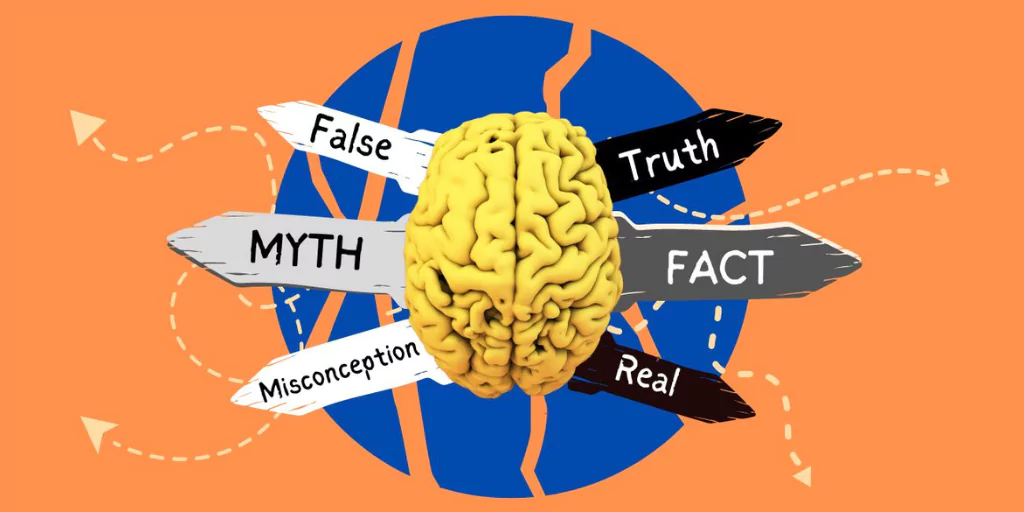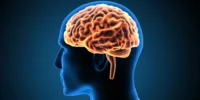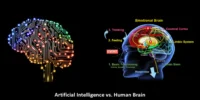The human brain is a fascinating and complicated organ, but it is plagued by myths and misconceptions. Many of these assumptions, which are frequently repeated in movies, literature, and casual conversations, are just incorrect. Understanding the facts about the brain allows us to better care for it and recognise its tremendous potential.
Also See: Brain Structure & Anatomy
Common Brain Myths
1. We Only Use 10% of Our Brain

- Myth: Most people think 90% of the brain remains unused.
- Fact: Neuroimaging reveals that nearly all parts of the brain have a specific function, and we utilise different regions for various tasks throughout the day.
2. Left-Brained or Right-Brained Personality
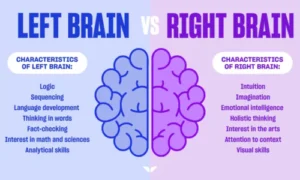
- Myth: People are either “logical left-brained” or “creative right-brained.”
- Fact: Both hemispheres work together for almost all tasks. While some functions are dominant in certain areas, personality is not strictly determined by a single aspect.
3. Brain Cells Cannot Regenerate
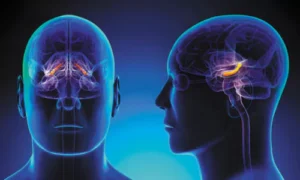
- Myth: Once neurons die, they never come back.
- Fact: The brain exhibits neuroplasticity, allowing it to form new neurons and connections, especially in the hippocampus, which is critical for memory.
4. Memory Works Like a Video Recorder

- Myth: The brain stores exact copies of every event.
- Fact: Memories are reconstructed, not recorded. They can change over time, influenced by emotions, context, and repetition.
5. Bigger Brains Mean Smarter People
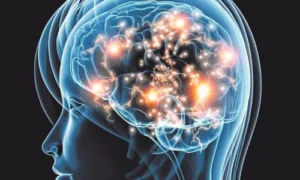
- Myth: The Size of the brain directly correlates with intelligence.
- Fact: Intelligence depends on neural connections, efficiency, and brain organisation, not size.
6. Alcohol Kills Brain Cells
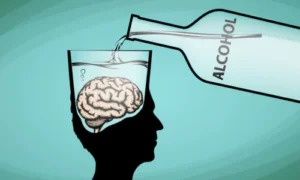
- Myth: Drinking alcohol directly destroys neurons.
- Fact: Moderate alcohol doesn’t kill brain cells, but excessive drinking can damage connections and affect brain function.
7. Left-Handed People Are Smarter

- Myth: Left-handed individuals have superior intelligence.
- Fact: Hand dominance is not linked to intelligence. Both left- and right-handed people can be equally smart.
Why Busting Brain Myths Matters
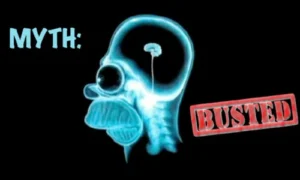
Believing false information can lead to:
- Underestimating your brain’s potential.
- Avoiding healthy brain exercises due to misconceptions.
- Spreading incorrect knowledge to others.
By understanding the facts, we can make better choices for brain health, learning, and mental performance.
Ways to Maintain the Health of Your Brain
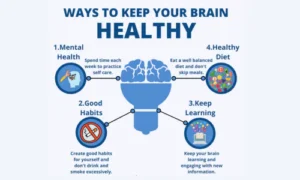
1. Consume a well-balanced diet high in vitamins, antioxidants, and omega-3 fatty acids.
2. Maintain an active lifestyle to enhance blood flow to the brain.
3. Use learning, riddles, or new abilities to push your thinking.
4. To strengthen memory and heal neurons, get adequate sleep.
5. Use mindfulness exercises or meditation to reduce stress.
Conclusion
The brain is much more powerful, versatile, and capable than many misconceptions claim. Separating fact from fantasy enables us to maximise its potential, safeguard it from harm, and continue learning throughout life. Stop believing these fallacies and start respecting your brain for the magnificent organ that it is.
FAQs
1. Is the 10% brain usage myth true?
No, nearly all areas of the brain are active at different times.
2. Can the brain create new neurons?
Yes, through neuroplasticity, especially in the hippocampus.
3. Does alcohol kill brain cells?
Moderate alcohol doesn’t kill neurons, but excessive intake can harm brain function.
4. Are left-handed people smarter?
No, hand dominance is unrelated to intelligence.
5. Can memory be 100% accurate?
No, memories are reconstructed and can change over time.


